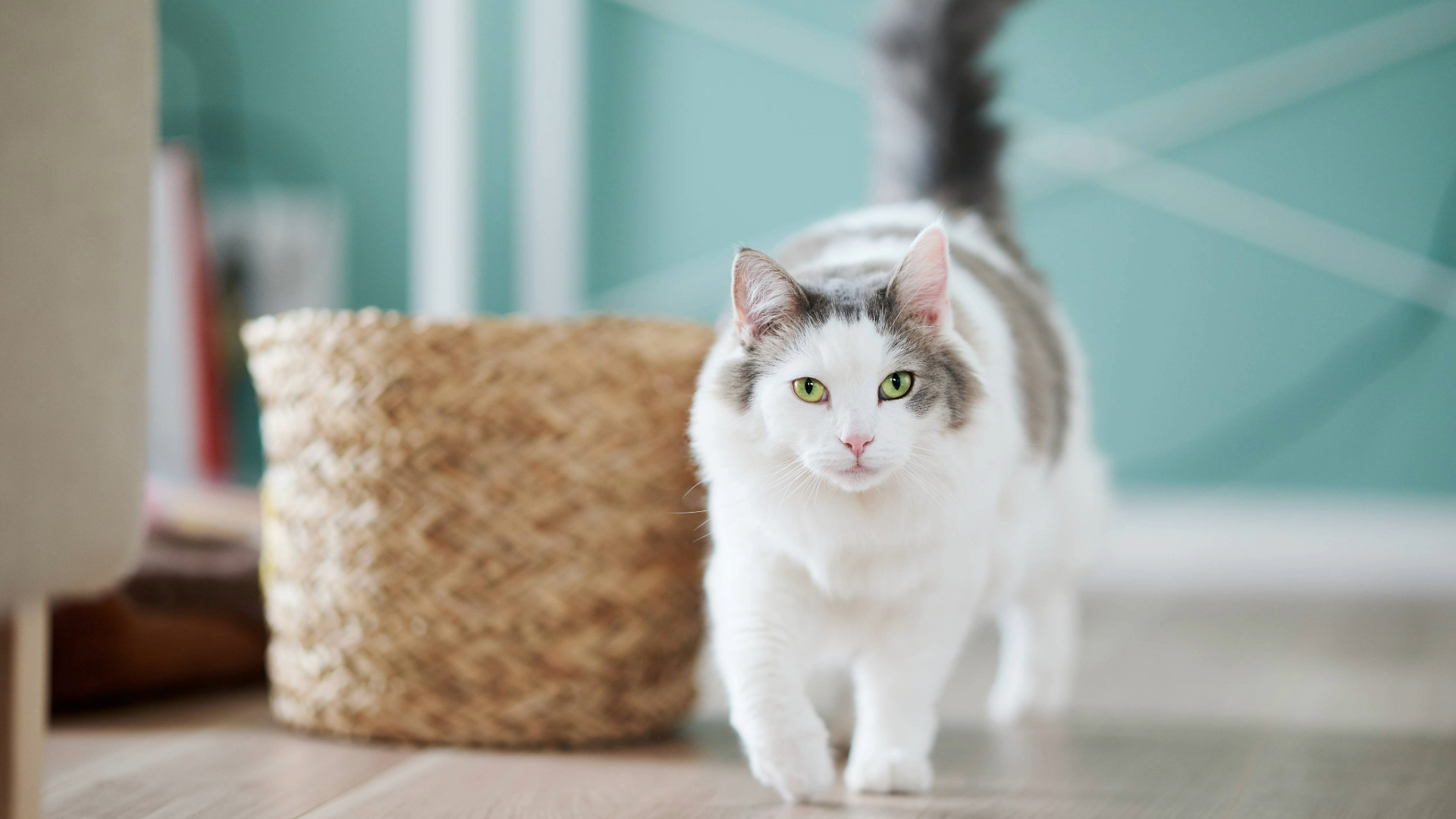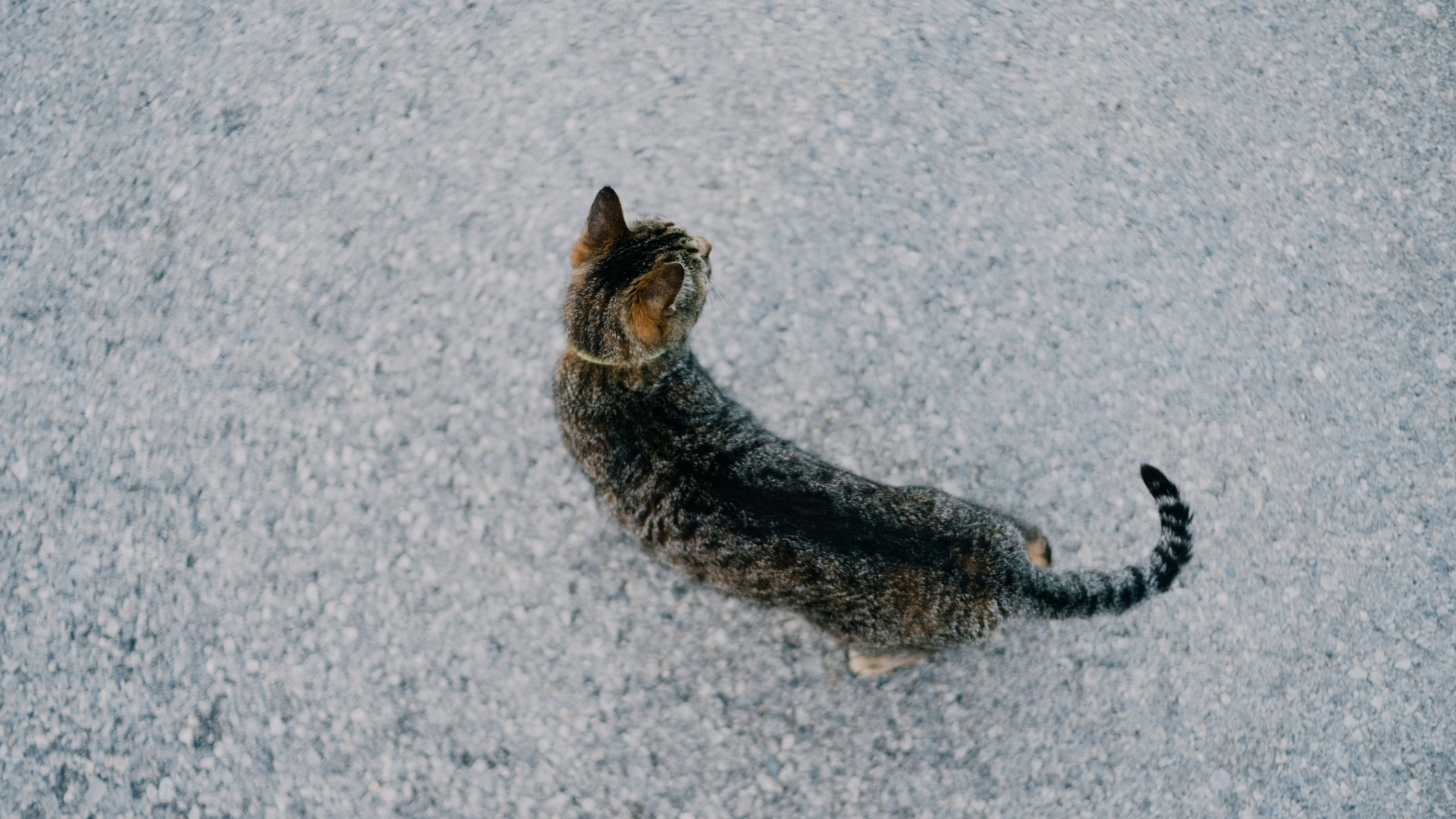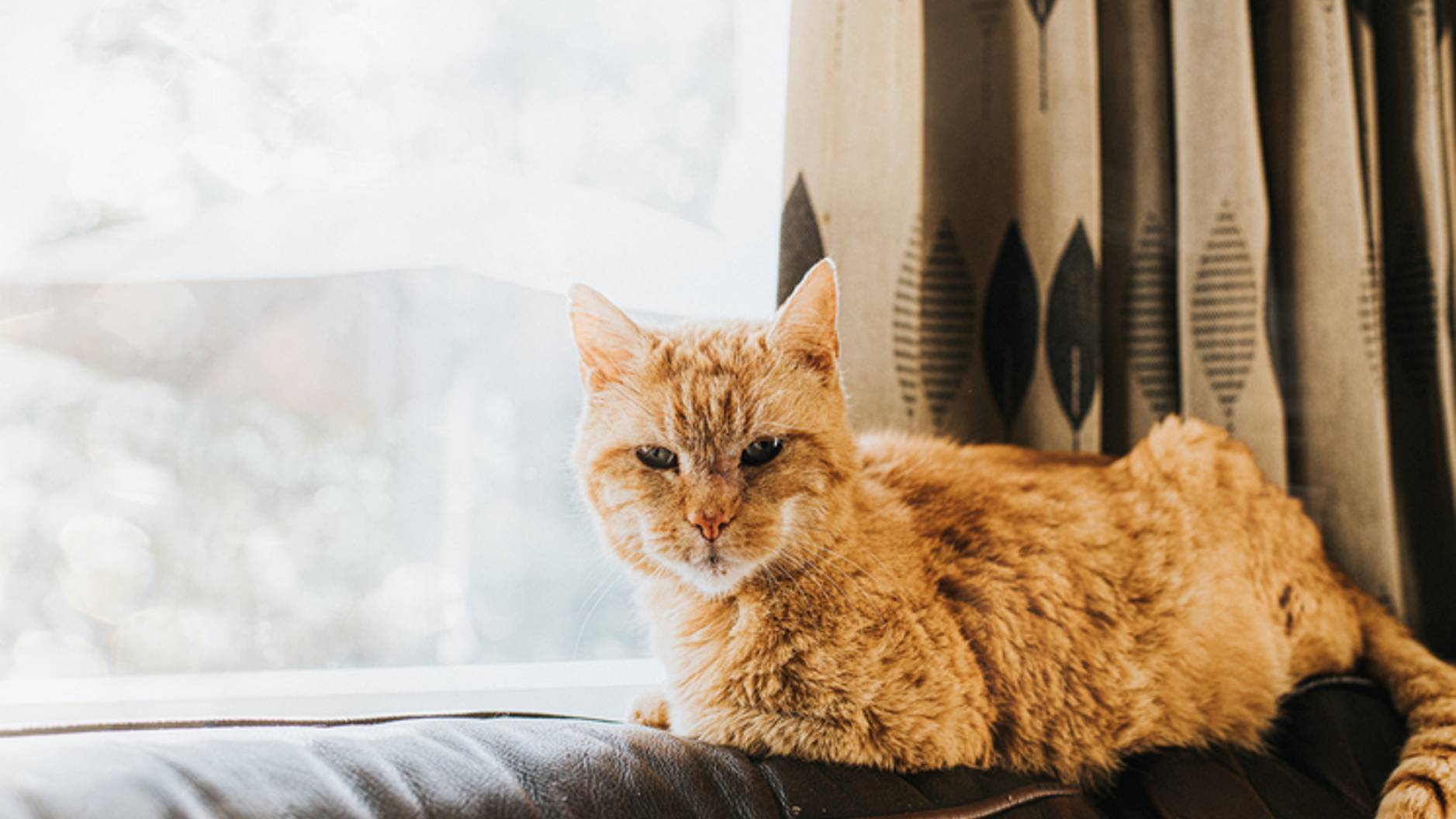A vet reveals why your cat is walking in circles (and how you can help)
Wondering why your cat is walking in circles? Here are eight potential causes

Get the best advice, tips and top tech for your beloved Pets
You are now subscribed
Your newsletter sign-up was successful
Have you noticed your cat walking in circles? If so, you’re probably feeling a little confused – and maybe even concerned. While this behavior doesn’t always indicate a health issue, it is a possibility, which is why it’s always important to have your cat checked by a vet.
Circling can be caused by anything from anxiety in cats to a brain tumor, so watch for any accompanying symptoms that might give you a clearer picture of what’s going on. You should also assess their environment for any clues. For example, if there are construction works happening in your house, this could be causing your cat to feel stressed out and pace around. Or, perhaps they’re just following a scent they’ve caught a whiff of!
There are several possible reasons your cat might be walking in circles, which Dr. Cathy Barnette explores below. With nearly two decades of experience as a qualified vet, she’s here to help you understand what’s wrong with your feline and when to seek professional help.
Why is my cat walking in circles?
Again, there are several potential causes of circling in cats. These include behavioral causes, conditions that affect the brain and/or vestibular system (which is responsible for balance), and other medical concerns. Common causes of circling in cats include:
1. Pacing, especially in intact cats
Intact female cats often pace when they go into heat (so you may want to know how to tell when a cat is in heat to help rule it out). While this pacing isn’t exclusively in a circle, cats that pace in a small room may appear to be walking in circles. This form of circling can be treated by having your cat spayed.
2. Anxiety
Anxiety can also cause pacing in cats. Depending on where your cat is pacing, this may look like your cat is walking in circles so become familiar with anxiety to help spot the signs. If this is the case, read our guide on how to calm a cat.
Feliway Classic Cat Calming Pheromone Diffuser | Amazon
If your cat is feeling stressed or anxious, Feliway’s calming diffuser is worth a try. It mimics the happy facial pheromones that can help them relax, and the best part is that it’s drug-free and non-sedating.
3. Cognitive dysfunction
Like humans, cats often experience behavioral changes with age. In some cases, cognitive dysfunction (or dementia) can lead to circling, along with other behavioral changes such as excessive meowing.
Get the best advice, tips and top tech for your beloved Pets
4. Idiopathic vestibular disease
In this condition, which resembles vertigo in humans, cats suddenly experience a loss of balance. Affected cats often walk in circles, in addition to experiencing difficulties with balance and falling to one side. You may also notice a head tilt and rapid back-and-forth eye movements (nystagmus). It’s a condition that can explain why a dog is spinning in circles too.
5. Head trauma
A blow to the head can cause damage and inflammation in the brain, which may result in circling. In the case of a traumatic brain injury, your cat will likely also experience other neurologic and behavioral changes.

6. Brain tumor
In older cats, tumors within the brain are a potential cause of circling. Brain tumors are also often associated with other neurologic changes.
7. Stroke
While strokes and other vascular incidents are less common in cats than humans, they can occur and they are a possible cause of circling.
8. Inflammatory brain disease
Toxoplasmosis (which can result when cats come into contact with mice), cryptococcosis, and other infections can cause neurologic changes, including circling.
It’s also worth noting that the causes of feline circling can have significant overlap in clinical signs, so it’s usually not possible to determine the cause of your cat’s circling from simple observation. Diagnostic tests are typically needed to determine the cause of a cat’s circling.
Is it normal for a cat to walk in circles?
The answer depends on context, the kind of circling and a cat’s overall behavior. You likely have little worry about if your cat occasionally circles you or other pets during a play session or circles a toy during play. Cats can also wander in circles when following a scent trail or if they’re being walked on one of the best cat harnesses.
Abnormal circling is repetitive and habitual, occurring in a variety of contexts. You may have trouble distracting your cat from their circling. In some cases, abnormal circling may be accompanied by other concerning clinical signs, such as weakness, stumbling, loss of coordination, and changes in appetite (see our guide to 'cat not eating?' for what to do if your cat has suddenly lost their appetite).
If you notice your cat circling and they're also displaying other symptoms, like the ones listed above, you'll want to pay attention to this.
Why is my senior cat walking in circles?
Like any other cat, the list of potential causes for circling in a senior cat is long. In an older cat, however, some conditions are more likely than others. Your veterinarian will probably want to first rule out a brain tumor or stroke, because these are serious conditions that are more likely to occur in older cats.
If your cat is not showing signs of a stroke or brain tumor, your veterinarian may instead suspect idiopathic vestibular disease or cognitive dysfunction as the cause of your cat’s circling. A thorough workup will likely be needed to determine the cause of your cat’s circling.

When should I visit my vet?
If your cat seems to be circling, take a few minutes to observe the behavior more closely. Ask yourself:
- Is your cat truly circling or is your cat pacing along a route that happens to be circular?
- If a cat is pacing, has the behavior come on gradually or suddenly?
- Are there any identifiable triggers for this new behavior?
There are some key triggers to watch out for such as moving home or adding a new pet to your family. In any case, your veterinarian may be able to prescribe treatments to help with your cat’s pacing but pacing may be less urgent than true circling in a cat.
If your cat experiences a new onset of circling that is repetitive and habitual, especially if accompanied by other neurologic or behavioral changes, an urgent vet visit is in order. This sort of circling is more likely to be associated with an underlying medical condition, which may require treatment.
What will a vet do?
Your vet will begin by performing a physical exam, as well as some baseline blood and urine testing, to narrow down the list of possible causes for your cat’s circling. Your veterinarian may refer you to a veterinary neurologist for more specialized testing.
If your cat does have a serious underlying condition, early detection can improve your cat’s prognosis. You may also want to consider the best pet insurance to help with any potential costs. If so, check out five things to look out for when shopping for the best policy.
A cat walking in circles could be completely normal, or could have a significant underlying condition. As a pet owner, your first step should be to closely observe your cat’s behavior, with the goal of determining whether this is an isolated incident or a repetitive behavior. If your cat is repetitively walking in circles, a vet visit will be needed to determine the cause of your cat’s circling and any recommended treatments.

Dr. Cathy Barnette graduated from the University of Florida in 2006 where she received both her B.S. in Zoology and her Doctor of Veterinary Medicine (DVM). She has 15 years of clinical experience as a small animal veterinarian, treating dogs, cats, and occasional exotic patients. When she’s not writing content as a freelance veterinary writer, Dr. Barnette lives in southwest Florida with her husband and daughter (plus two cats, a dog, and a rescued dove!) and enjoys kayaking, biking, and hiking.
Edited by Georgia Guerin and Megan Milstead.
This feature was last updated on February 6, 2025.
Dr. Barnette is a graduate of the University of Florida, where she received both her B.S. in Zoology and her Doctor of Veterinary Medicine (DVM). She has 15 years of clinical experience as a small animal veterinarian, treating dogs, cats, and occasional exotic patients. She now works as a freelance veterinary writer, creating educational content for veterinarians, veterinary team members, and dedicated pet owners. Dr. Barnette lives in southwest Florida with her husband and daughter (plus two cats, a dog, and a rescued dove!) and enjoys kayaking, biking, and hiking. Learn more about Dr. Barnette at www.linkedin.com/in/catherinebarnette.
- David CrookesFreelance writer
- Megan MilsteadStaff Writer


